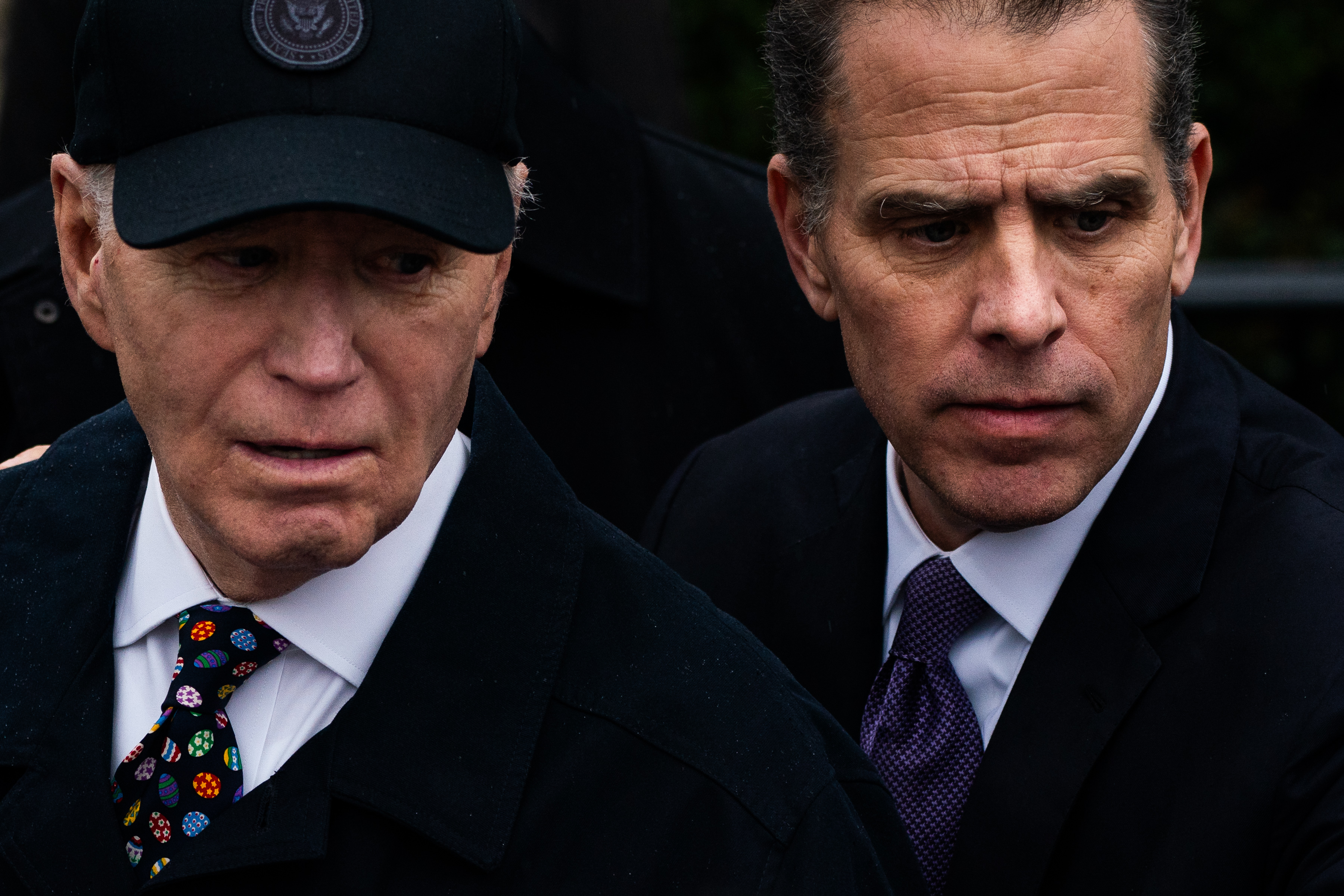With Hunter pardon, Biden joins short list of presidents who absolved family

President Joe Biden and his son Hunter during the White House Easter Egg Roll in April. (Demetrius Freeman/The Washington Post)
While controversy over presidential pardons has a long history—from George Washington absolving instigators of the Whiskey Rebellion in 1795 to Gerald Ford pardoning Richard M. Nixon after the Watergate scandal forced his resignation—few have used the constitutionally vested power to pardon family members.
On Sunday, President Joe Biden issued a full and unconditional pardon to his son Hunter, who was convicted of gun-related charges and pleaded guilty in a tax case. Biden said his son was “selectively, and unfairly, prosecuted.”
Here’s a look at the recent history of presidential pardons granted to family members:
Biden pardons Hunter
Hunter Biden’s legal travails have cast a shadow over his father’s presidency. In June, he was convicted of lying on a gun-purchase form in 2018. He checked a box denying the use of illegal drugs even though he was an addict, then illegally owned the weapon for 11 days. In a separate case, he pleaded guilty in September to nine federal tax charges in California and faced up to 17 years in prison and more than $1 million in fines.
In a statement, Biden said the cases were brought because of political pressure from his opponents on federal prosecutors.
“No reasonable person who looks at the facts of Hunter’s cases can reach any other conclusion than Hunter was singled out only because he is my son - and that is wrong,” the statement said.
The move came days before sentencing in the two cases and was a reversal of Biden’s public stance that he would not pardon his son or commute his sentences.
Biden made an emotional appeal in his statement: “I hope Americans will understand why a father and a President would come to this decision.”
Trump pardoned his in-law Charles Kushner
At the end of his first term, President Donald Trump granted several pardons to allies, campaign aides and top GOP donors, many of whom went on to support his reelection bid. Among them was Charles Kushner, the father of Trump’s son-in-law Jared - who handled a Middle East portfolio in the first Trump administration.
Charles Kushner, a real estate developer like Trump, pleaded guilty in 2004 to 18 counts of falsifying tax returns, retaliating against a witness and making false statements about campaign contributions to the Federal Election Commission.
He admitted to recruiting a sex worker to seduce the husband of a cooperating witness and videotaping them having sex. The witness was his sister.
New Jersey’s former Republican governor Chris Christie, once a contender against Trump for their party’s presidential nomination, served on the prosecution team and said during a segment of PBS’s “Firing Line with Margaret Hoover” in 2019: “It’s one of the most loathsome, disgusting crimes that I prosecuted when I was U.S. attorney.”
Kushner was sentenced to two years in prison and served 14 months. In December 2020, Trump pardoned him, and he announced him last week as the ambassador to France for his incoming administration.
Trump also mused about pardoning himself preemptively during his first term - a scenario that would have been without precedent - tweeting in 2018 that he had the “absolute right” to do so.
President Bill Clinton pardoned his half brother, Roger
On his last day in office, Jan. 20, 2001, President Bill Clinton granted a slew of pardons, which became the subject of an investigation into the possible circumvention of Justice Department processes.
One of the most notable names on the list was Roger Clinton—his half brother. (Roger, 10 years his junior, is the son of Clinton’s mother, Virginia Dell Kelley, and his stepfather.)
In 1985, Roger Clinton pleaded guilty to selling cocaine to an undercover police officer in Arkansas and spent a year in prison. The pardon helped clear his criminal record.
Roger Clinton also became embroiled in controversy when it was revealed that he had given the president a list of people to pardon, though he wasn’t paid to make the recommendations. Those pardons were not granted.



